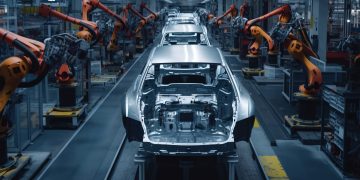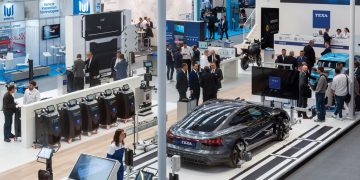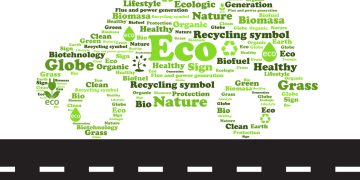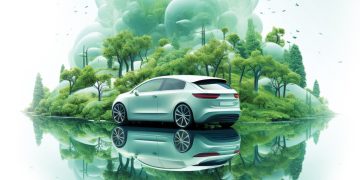Calling it ‘inclusive and growth-oriented’, Finance Minister Nirmala Sitharaman tabled the Union Budget 2022 on February 1st. The budget proposed a slew of measures for the automotive sector including a new battery swapping policy and a focus on electric vehicles for public transport. Howbeit, there weren’t many key announcements made for the automotive sector. Also, there was no announcement pertaining to petrol and diesel vehicle makers.
Announcements related to EV and battery swapping will benefit the auto repair & maintenance players in a limited manner, making them adopt a new business model. Infrastructure development may be expected to have a positive impact on the commercial vehicles sector as the ` 20,000 Cr
investment and 25,000 km expansion of National Highways may create demand for new vehicles, which in turn create more business in the repair & maintenance sector.
What do the industry stalwarts feel about the budget? Here are some reactions.
Union Budget 2022 seeks to lay the foundation for the next 25 years, from India@75 to India@100. With PM’s ‘Gati Shakti National Master Plan’, a ` 100-lakh Cr project for building comprehensive infrastructure in India, it will be a significant step towards path to development. The Budget has attempted to focus on each of the sectors and has also tried to stimulate the economy after the pandemic slowdown. FADA welcomes and supports the Government’s efforts & initiatives towards Electric Mobility. There is a clear emphasis on creative, sustainable & innovative business models. Battery Swapping & Energy as a Service (EAAS) will surely help accelerate the transition towards Clean Mobility. The development of special mobility zones for electric vehicles and promoting clean technology for public transport validate government commitment to E-mobility, which would boost confidence in the
EV industry in terms of manufacturing, sales, and create a sense of assurance among customers.
The government’s plans for developing 25,000 km of new highways will result in a push for infrastructure spending, which will result in an increase in Commercial Vehicle sales, as well as an addition of 2,000 km of road under a new scheme known as ‘Kavach’ will be an additional benefit to the revival of this segment. With the extension of the ECLG scheme, it is a remarkable move by the government to support the MSME sector coming out of the slowdown caused by pandemics.
The rural India has generally been the key driver for entry level passenger vehicle segment &
Two wheeler space. With government plans on ` 2.3 lakh Cr direct payment as MSP to farmers, it will work as a booster for Two Wheeler, Tractor & entry level PV sector sales. However, an additional duty of
rupees 2/litre on unblended fuel from October 2022, could play a spoilsport for the already stressed
Two Wheeler industry.
We welcome the Union Budget 2022, which spells seamless growth for the Auto & Auto Ancillary industry in India. The government’s focus on ‘Aatmanirbharta’ will continue to provide impetus to build domestic capacities and push the agenda of ‘Vocal for Local’. The government’s focus on Battery Swapping policy to be brought with inter-operability standards and push for clean tech and electric vehicles will create the right ambient environment for EV introduction and overall harmonisation of the electric mobility aspiration of the nation. This move will prove to a giant leap for the nation in advocating introduction of cleaner propulsion technologies and will improve air quality and reduce consumption of conventional fossil fuels.
The government has laid emphasis for the development of the infrastructure within the country that will further help build capacities for the resurgence of the automotive sector in India and envisages ` 20K Cr investment outlay in infrastructure projects, under the auspices of PM’s Gati Shakti that focuses on seven engines of growth, including building the road transport network in the country. The National Highways network will be expanded by 25,000 km in 2022-23. Better roads will have a certain positive impact on the automotive sector. Finally, the government’s decision of strengthening the rural economy through a MSP payment of ` 2.73 lakh Cr along with other benefits with an objective of aiding the farming sector, will help increase the disposable income, improving the sentiment in rural areas and further improving the demand & aspirations of rural and semi-urban markets of India for personal mobility.
We welcome the measures announced by the honorable Finance Minister, today. The budget for 2022–23 gives a huge impetus to the electric vehicle (EV) industry. Introducing the battery swapping policy and recognizing battery or energy as a service will help to develop EV infrastructure and increase the use of EVs in public transportation. It would motivate businesses engaged in delivery and ride aggregation businesses to incorporate EVs into their fleet. It will create new avenues for companies to venture into the business of battery swapping. Additionally, creating special clean zones will further accelerate the adoption of EVs and spread awareness amongst the citizens. The move will benefit the whole segment, i.e E2W, E3W, E-Cars, and Buses.
The budget also provides attention to the need for skilled resources in the industry. Introducing new skill programs in ITI will bridge the skill gap that currently exists in the industry. The industry would be happy to work with the government to devise customized courses to meet the demands of the EV industry.
Overall, the budget aims at strengthening the whole ecosystem of the EV industry, which will spur the demand for green vehicles.
We welcome the union budget for the year 2022-23. This is a good budget for the promotion of green mobility. The PM Gati Shakti project is a revolutionary project that will take India’s logistics, infrastructure, sustainability, and green mobility initiatives forward, as this focuses on multi-modal logistic parks and Unified Logistics Interface Platforms, we believe that it will help in reconciling supply chain constrains and make them more robust. Considering, the battery swapping policy one of the initiatives in the Budget for the auto industry, we feel the policy as being a sincere advocate of EVs as last mile mobility solutions. Larger battery swapping infrastructure will help enhance EV infrastructure and should propel adoption of EVs. We are glad that government is encouraging to create sustainable and innovative business models for battery and energy as a service, improving the efficiency in the EV ecosystem. This will also generate employment opportunities as planned by the government under the Make In India initiative.
There are some good announcements in the budget to promote EV’s through promoting charging infra and standardizing the battery norms for swapping and inter operability. However the budget has missed a major challenge in EV adoption-Availability of Financing for fleets and Credit Guarantee by Government is desperately required by fleet owners who have suffered hugely during the pandemic. The commercial car industry is ready to transition to EV but without availability of easy finance at low cost, this will be delayed further.
The battery swapping policy will certainly have a positive impact on electrification of vehicle segments such as City Buses, Taxis, Three Wheeler as most of these operate in a more or less fixed territory and in cases of buses, one entity i.e. the transport corporation can own the swapping stations locate within the depots which creates and end to end control viz. over the vehicle as well as the fuel i.e., the battery which in turn aids in the demand management of batteries. In addition, Two Wheeler applications would also benefit on account of this. This would also need a cloud powered interconnected network which would also give a boost to connectivity solutions. It will, however, be worthwhile to see the details of the policy to understand how it draws a fine balance between standardisation and innovation for better designs in terms of battery form factors and chemistries which in turn influence the energy densities, charging rates, etc. Given the expected increases prices of battery raw material, steps must also be taken to ensure technology absorption can be brought about in cell level manufacturing.” The Finance Minister has heard our requests and announced specific EV policies in the 2022 Budget that will transform the EV sector in India, especially the charging infrastructure. The announcement of the much-awaited battery swapping policy will provide charging solutions to those with space shortages while the to-be-formulated interoperability standards will provide certainty to EV manufacturers and investors looking to build charging stations. With the introduction of special mobility zones with zero fossil fuels as well, the 2022 Budget looks like it will be a game changer for the Indian EV ecosystem”

























































